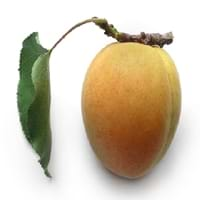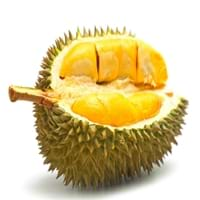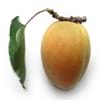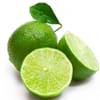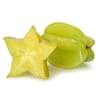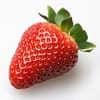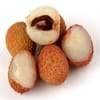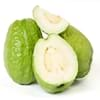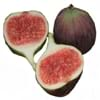Health Benefits
Asthma treatment, Cancer prevention, Controls blood pressure, Digestive aid, Heart care, Maintains hormonal balance, Regulation of heart rate, Skin cleansing, Skin rejuvenation
Anti depressant, Boosts immune system, Cancer prevention, Heart care, Reduces stress
General Benefits
Boosts immune system, Controls blood pressure, Digestive aid, Eye care, Maintains healthy cholesterol level, Strengthens bones
Anti oxidant properties, Anti-inflammatory properties, Boosts immune system, Controls blood pressure, Controls blood sugar levels, Digestive aid, Flu treatment, Strengthens bones
Skin Benefits
Hydrates skin, Reduces wrinkles, Treatment of dark spots, Treatment of skin diseases
Anti-aging benefits, Brightens and lightens complexion
Hair Benefits
Good conditioner, Regulates hair growth, Rejuvenates scalp, Softening mask, Treatment of dandruff
Promotes longer and healthier hair, Protects hair
Allergy Symptoms
Abdominal cramps, Anaphylaxis, Breathing difficulty, Diarrhea, Itching of mouth, Itching sensation in throat, Swelling of mouth, tongue or lips, Vomiting, Wheezing
Diarrhea, Headaches, Hives, Nasal congestion, Red rash, Runny nose, Vomiting
Side Effects
Dizziness, Headache, Nausea, Vomiting
Affects blood glucose levels, Nausea, Stomach pain
Best Time to Eat
Best if taken as a breakfast (or empty stomach), As a snack in the late afternoon, Don't consume at night and before bed, Eat the fresh ones, avoid mixing with any other foods, don't eat after meal.
Along with meal, As a snack in the late afternoon, Don't consume at night and before bed, Morning time (before lunch)
Vitamin B5 (Pantothenic Acid)
Vitamin C (Ascorbic Acid)
Vitamin E (Tocopherole)
Not Available
Vitamin K (Phyllochinone)
Not Available
Lutein+Zeaxanthin
Not Available
Phytosterol
Not Available
Calories in Fresh Fruit with Peel
Not Available
Calories in Fresh Fruit without Peel
Not Available
Calories in Frozen Form
Not Available
Calories in Canned Form
Not Available
Calories in Pie
Not Available
Type
Tree fruit
Tree fruit, Tropical
Varieties
Gold Cot, Tilton, Wenatchee, Goldbar, Gold Kist, Tomcot, Harcot, Brittany Gold, Harglow, Hunza, Moorpark, Patterson and Royal Rosa
D24, D99 (Gob kecil), D123 (Chanee), D145 (Beserah), D158 (Gan Yau), D159 (Monthong), D169 (Tok Litok), D188, D189, D190, D163 (Hor Lor) and D164 (Ang Bak)
Color
Orange, Yellowish-orange
Green
Inside Color
Yellow
Yellow
Taste
Smooth, Sweet
Creamy, Sweet
Origin
China
South-Eastern Asia
Grows on
Trees
Not Available
Soil Type
Well-drained
Clay
Climatic Conditions
Dry, Hot
Hot, Humid
Facts about
- 9 Jan is considered as the National Apricot Day.
- Apricots have been around for more than 4000 yrs.
- In latin, the meaning of apricot is 'precious'.
- 95% of apricots in the US are produced by California.
- 1 kg of durian contains 1350 calories which may cause weight gain.
- It may have a hyperthermic effect on the body, making you feel warmer.
- Study shows that durian has an ability to reduce infertility in men & women.
Top Producer
Turkey
Thailand
Other Countries
Algeria, Egypt, France, Iran, Italy, Morocco, Pakistan, Spain, Uzbekistan
Indonesia, Malaysia, Philippines
Top Importer
United States of America
China
Top Exporter
France
Thailand
Botanical Name
Prunus armeniaca
Durio zibethinus
Synonym
Not Available
Lahia Hassk
Subkingdom
Tracheobionta
Tracheobionta
Division
Magnoliophyta
Magnoliophyta
Class
Magnoliopsida
Magnoliopsida
Subclass
Rosidae
Dillenhidae
Family
Rosaceae
Malvaceae
Species
P. armeniaca
D. zibethinus
Generic Group
Rose
Not Available
Difference Between Apricot and Durian
We might think that Apricot and Durian are similar with respect to nutritional value and health benefits. But the nutrient content of both fruits is different. Apricot and Durian Facts such as their taste, shape, color, and size are also distinct. The difference between Apricot and Durian is explained here.
The amount of calories in 100 gm of fresh Apricot and Durian with peel is 48.00 kcal and Not Available and the amount of calories without peel is Not Available and 147.00 kcal respectively. Thus, Apricot and Durian belong to Low Calorie Fruits and High Calorie Fruits category.These fruits might or might not differ with respect to their scientific classification. The order of Apricot and Durian is Rosales and Malvales respectively. Apricot belongs to Rosaceae family and Durian belongs to Malvaceae family. Apricot belongs to Prunus genus of P. armeniaca species and Durian belongs to Durio genus of D. zibethinus species. Beings plants, both fruits belong to Plantae Kingdom.
